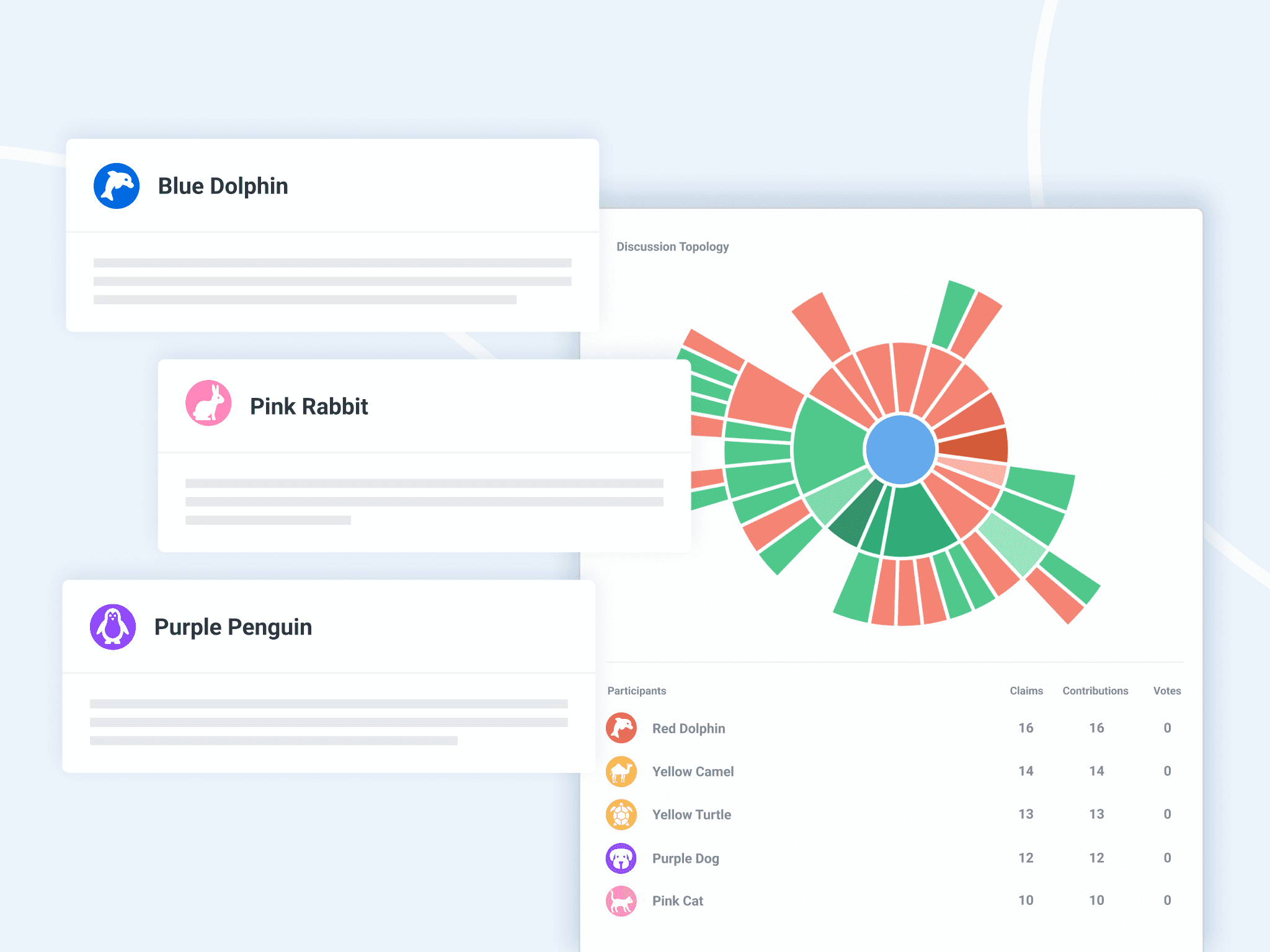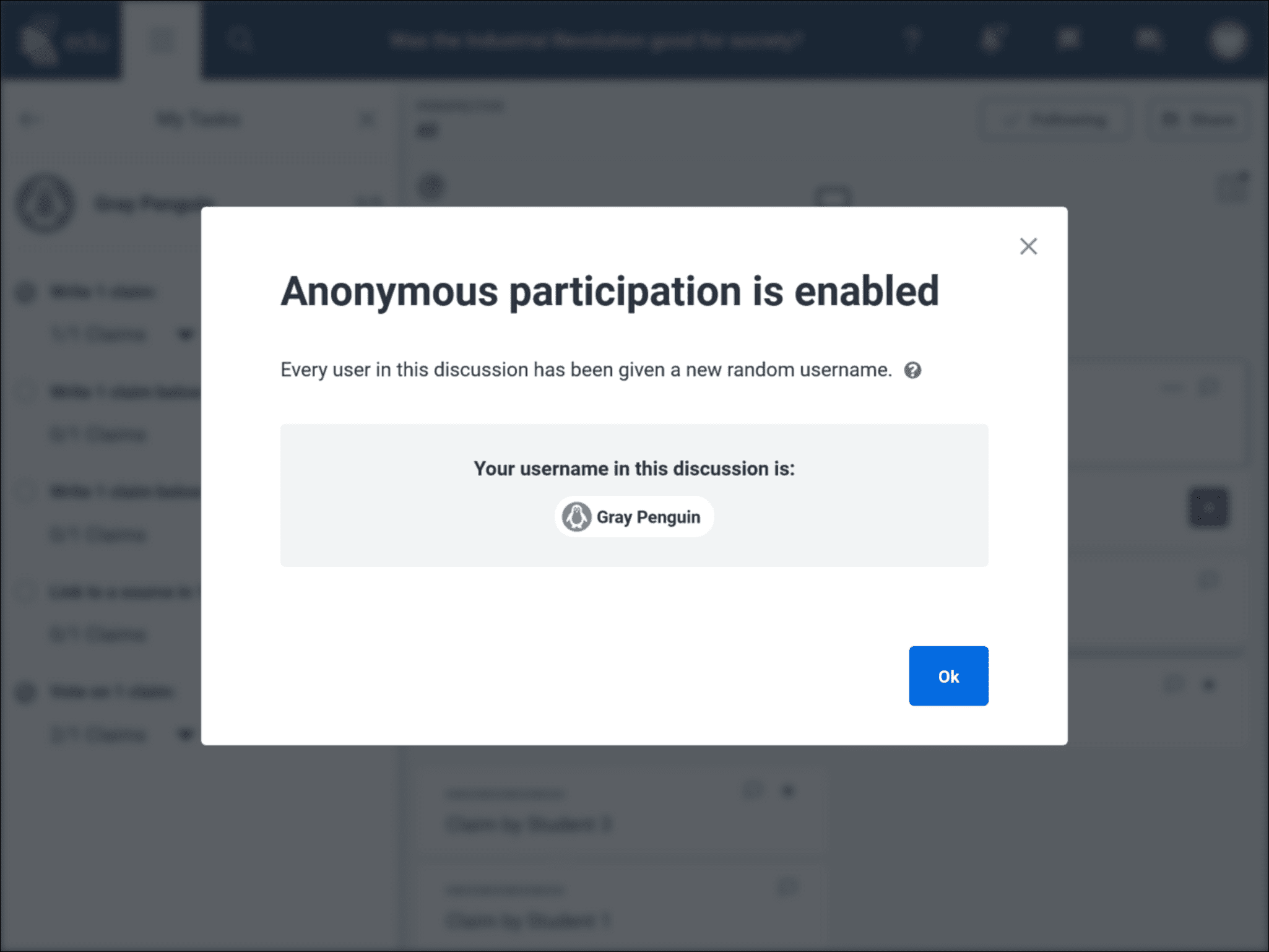We know that for educators, facilitating a successful class discussion is a deeply rewarding experience. However, encouraging students to participate is not always easy, especially when it comes to critically engaging with controversial issues.
That’s why Kialo offers an Anonymous Discussions feature that lets you hide students’ names so they can feel more comfortable participating in a discussion! Let’s explore some of the benefits of engaging in anonymous discussions with your students, and how you can do so on Kialo — completely free!
What are the benefits in using anonymous discussions?
1. Create more inclusive participation

Creating a classroom environment where all students feel comfortable to contribute is crucial. When students feel like their ideas are valued and worthwhile, it builds motivation and engagement. However, different students have different comfort levels when it comes to contributing, and it’s important to take into account the needs of shy, introverted, or English-Language Learner (ELL) students when designing class discussions.
By going a step further and anonymizing student contributions, you can encourage participation among students who might — for whatever reason — be apprehensive, while building confidence in their ability to partake in class debates.
You can also use anonymous discussions to strengthen students’ sense of autonomy. Having students debate what they will focus on in the next class, week, or term gives them a sense of ownership over their learning, while anonymity provides greater security in voicing their true opinions. Giving students a say over what and how they will study has been highlighted as a key component of deeper learning.
2. Tackle controversial topics
Another benefit of anonymizing student contributions during class discussions is that they can help create a space in which students feel free to speak their mind on important but controversial topics. Building a culture of civil discourse in your classroom is a noble goal, but it won’t happen overnight! These are skills that students gain through continued practice.
When discussing potentially sensitive topics like the compatibility of science and religion, or whether drugs should be legalized like alcohol, having students make their points anonymously might help to create an environment in which differing views are assessed on their own merits. In turn, this can contribute to a culture of cognitive empathy in your classroom.
3. Counter implicit bias
While most educators strive for an inclusive and equitable classroom where all contributions are valued and encouraged, this is sometimes easier said than done. Implicit biases can inform who gets called on to contribute and which contributions are given more value.
By holding anonymous, digital discussions, educators can be certain that they are assessing contributions based on merit. Plus, you’ll be less likely to have preconceptions about students, which may influence the time or importance given to particular statements.
And while educators may strive to root out any implicit bias in their classroom practice, the same is not always true of students! By removing interpersonal dynamics from the points made in a given discussion, students practice the important skill of engaging with ideas objectively.
For example, you may want to hold a debate where students are role-playing different viewpoints. Anonymizing their contributions can give them the distance required to defend positions they disagree with, while also focusing the discussion on the ideas themselves.
Using Anonymous Discussions in Kialo Edu

Using a digital platform like Kialo Edu can dilute some of the potential anxiety students may have in traditional, verbal discussions. They have more time to formulate their thoughts before contributing, and the social dimension of speaking aloud in class is removed.

When anonymous participation is enabled in a Kialo discussion, students are assigned colorful animal avatars instead of using their real names, though only you, as the educator, can see their true identities.
This allows all students to contribute to the debate under randomized usernames, helping them feel free to share their thoughts without fear of judgment. If you haven’t already, try an anonymous discussion on Kialo Edu today to create a more inclusive space that fosters increased participation and engagement!
Read on for even more Kialo Edu best practices — our tips and tricks will get you the most out of having Kialo discussions in your class!

